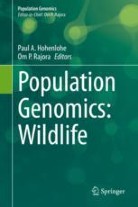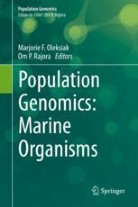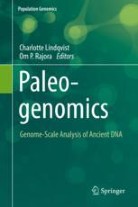
About this book series
This pioneering Population Genomics Series deals with the concepts and approaches of population genomics and their applications in addressing fundamental and applied topics in a wide variety of organisms. Population genomics is a fast emerging discipline, which has created a paradigm shift in many fields of life and medical sciences, including population biology, ecology, evolution, conservation, agriculture, horticulture, forestry, fisheries, human health and medicine.
Population genomics has revolutionized various disciplines of biology including population, evolutionary, ecological and conservation genetics, plant and animal breeding, human health, genetic medicine, and pharmacology by allowing to address novel and long-standing intractable questions with unprecedented power and accuracy. It employs large-scale or genome-wide genetic information across individuals and populations and bioinformatics, and provides a comprehensive genome-wide perspective and new insights that were not possible before.
Population genomics has provided novel conceptual approaches, and is tremendously advancing our understanding the roles of evolutionary processes, such as mutation, genetic drift, gene flow, and natural selection, in shaping up genetic variation at individual loci and across the genome and populations, disentangling the locus-specific effects from the genome-wide effects, detecting and localizing the functional genomic elements, improving the assessment of population genetic parameters or processes such as adaptive evolution, effective population size, gene flow, admixture, inbreeding and outbreeding depression, demography, and biogeography, and resolving evolutionary histories and phylogenetic relationships of extant and extinct species. Population genomics research is also providing key insights into the genomic basis of fitness, local adaptation, ecological and climate acclimation and adaptation, speciation, complex ecologically and economically important traits, and disease and insect resistance in plants, animals and/or humans. In fact, population genomics research has enabled the identification of genes and genetic variants associated with many disease conditions in humans, and it is facilitating genetic medicine and pharmacology. Furthermore, application of population genomics concepts and approaches facilitates plant and animal breeding, forensics, delineation of conservation genetic units, understanding evolutionary and genetic impacts of resource management practices and climate and environmental change, and conservation and sustainable management of plant and animal genetic resources.
The volume editors in this Series have been carefully selected and topics written by leading scholars from around the world.
- Electronic ISSN
- 2364-6772
- Print ISSN
- 2364-6764
- Editor-in-Chief
-
- Om P. Rajora
Book titles in this series
-

-
Population Genomics: Wildlife
- Editors:
-
- Paul A. Hohenlohe
- Om P. Rajora
- Copyright: 2021
Available Renditions
- Hard cover
- Soft cover
- eBook

-
Population Genomics: Marine Organisms
- Editors:
-
- Marjorie F. Oleksiak
- Om P. Rajora
- Copyright: 2020
Available Renditions
- Hard cover
- Soft cover
- eBook

-
Paleogenomics
Genome-Scale Analysis of Ancient DNA
- Editors:
-
- Charlotte Lindqvist
- Om P. Rajora
- Copyright: 2019
Available Renditions
- Hard cover
- eBook

-
Population Genomics
Concepts, Approaches and Applications
- Editors:
-
- Om P. Rajora
- Copyright: 2019
Available Renditions
- Hard cover
- eBook

